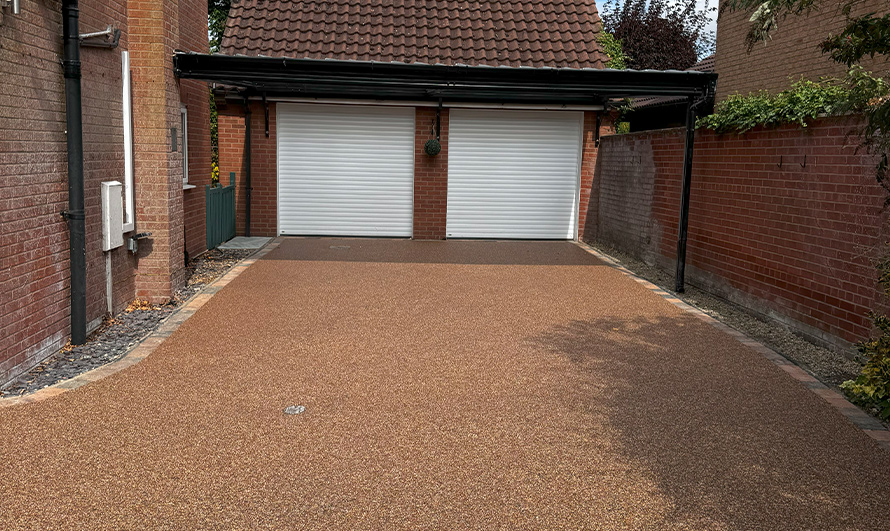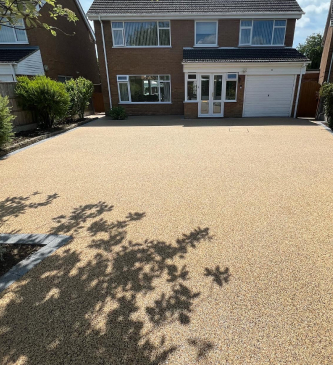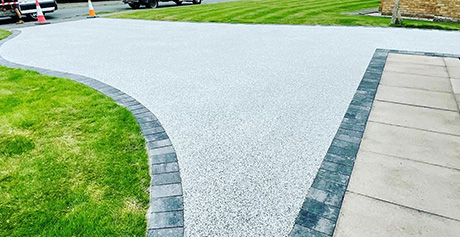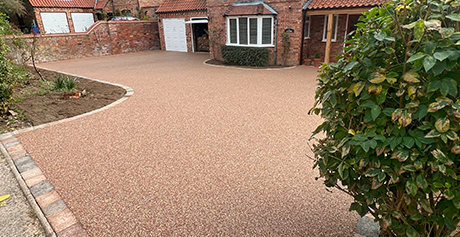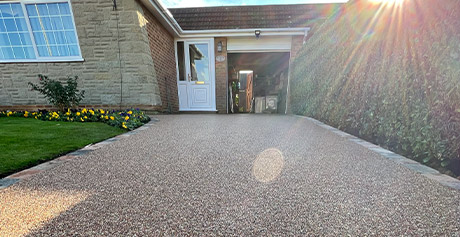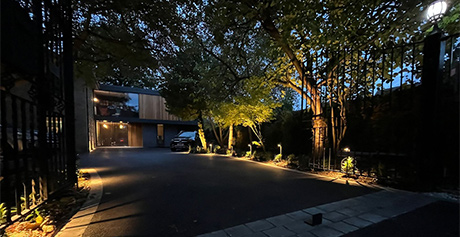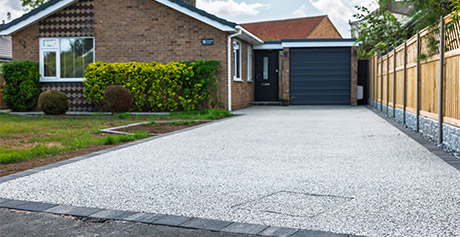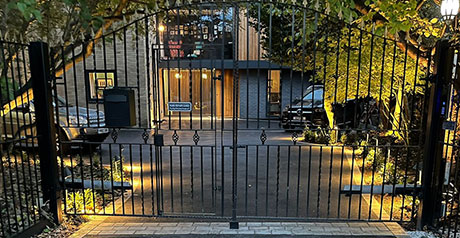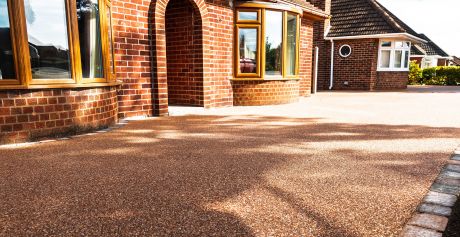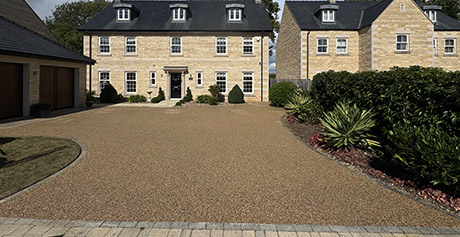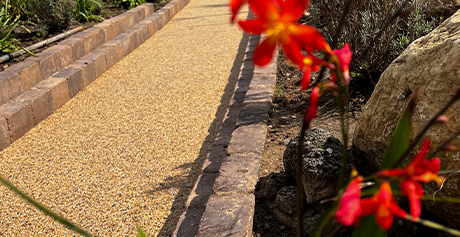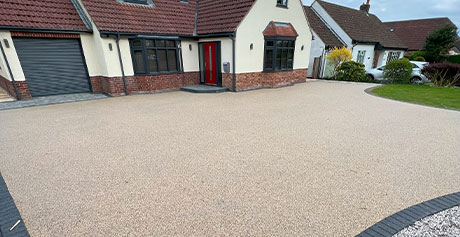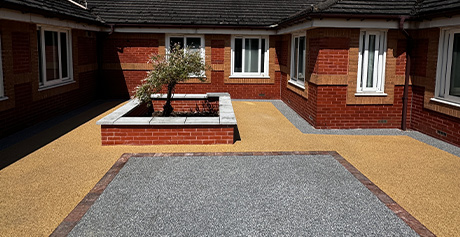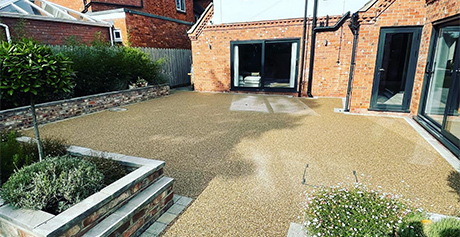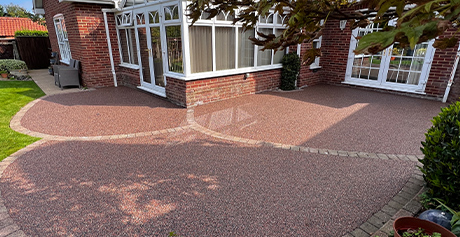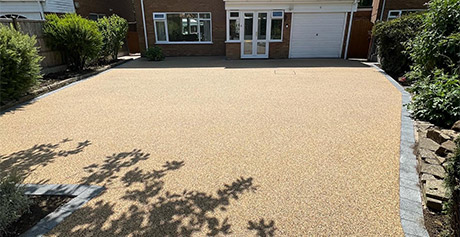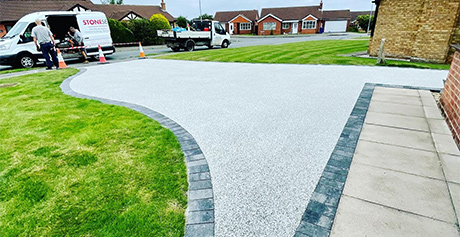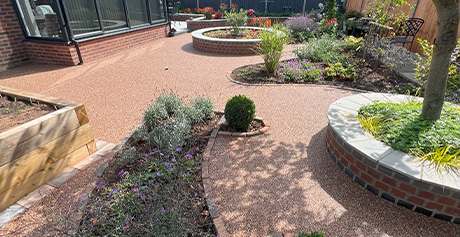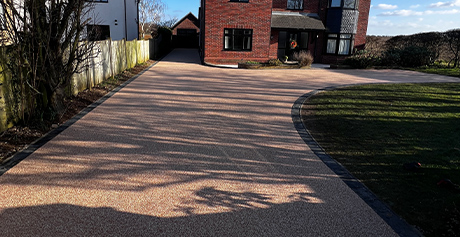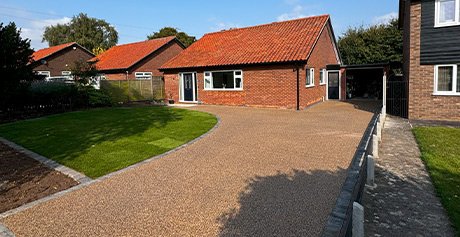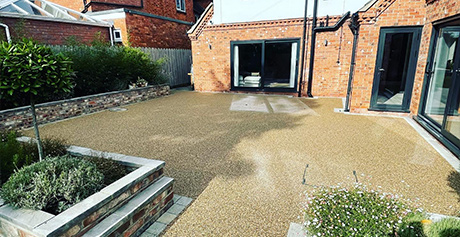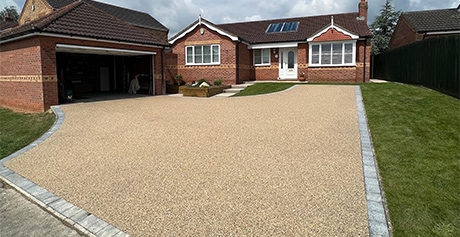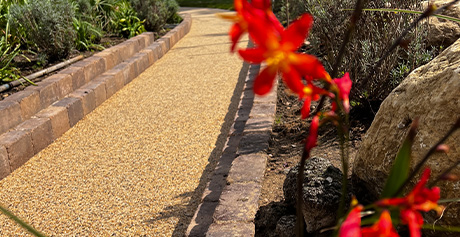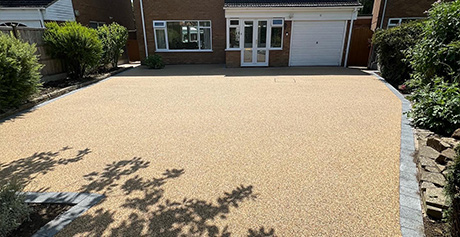Resin Bound Driveway FAQ
Choosing the right surface for your driveway is a big decision. It affects everything from your home’s kerb appeal to your long-term maintenance workload. At StoneSet, we get a lot of questions from homeowners considering resin bound driveways, so we thought it was high time we rounded up the most common ones into one handy guide.
In this blog, we’ll answer some of the questions we’re most frequently asked, using plain English (no jargon!) to help you feel confident and informed before making any decisions. If you’re new to resin bound surfacing, this is the place to start.
What is a Resin Bound Driveway?
A resin bound driveway is made from natural aggregates (stone chips) mixed with a clear resin. The mixture is trowelled onto a prepared base, leaving a smooth, solid surface that is fully permeable. Unlike loose gravel or block paving, resin bound surfaces don’t shift or allow weeds to grow through.
For more on how it compares with traditional surfacing, check out: Resin Bound vs. Block Paving.
Is a Resin Bound Driveway Permeable?
Yes! One of the major benefits of resin bound surfacing is that it’s porous. Water drains straight through the surface, helping to reduce puddling and promote better drainage.
This feature makes resin bound systems compliant with Sustainable Urban Drainage Systems (SUDS), meaning they’re a great choice for areas prone to flooding or heavy rainfall. More on this here: How Resin Bound Surfaces Help with Flood Prevention.
How Long Does a Resin Bound Driveway Last?
When installed correctly, a resin bound driveway can last over 20 years. The longevity depends on the quality of the materials used, the preparation of the base layer, and how well it’s maintained.
See: What Makes Resin Bound Surfacing Low-Maintenance and Long-Lasting?.
Does It Crack or Discolour Over Time?
Not if it’s done properly. A professionally installed resin bound driveway with UV-stable resin will retain its colour for years without fading or yellowing. It’s also flexible enough to handle minor ground movement, so it’s far less likely to crack than concrete or tarmac.
How Do I Maintain a Resin Bound Driveway?
Simple! Sweep regularly to keep it free of leaves and debris, and jet wash occasionally to remove dirt. If you’re concerned about oil spills or stubborn marks, a gentle detergent and brush usually does the trick.
Can I Park Heavy Vehicles on It?
Yes, resin bound driveways can easily support everyday family cars and small vans, as long as the base layer is properly prepared. If you’re parking larger commercial vehicles, just let your installer know so the right base can be put in place.
Is It Slippery When Wet?
No. Resin bound surfaces are designed with slip-resistance in mind. The textured aggregate surface provides good grip even in wet conditions, and anti-slip additives can be included if needed.
Can I Choose the Colour?
Absolutely. One of the biggest draws of resin bound surfacing is the wide variety of colours and blends available. Whether you want natural tones, modern greys or something more striking, there’s a finish to suit every home.
See our latest blog: Top Colour Trends for Resin Bound Surfacing in 2025.
Conclusion
Resin bound driveways are a practical, stylish and long-lasting choice for any home. With low maintenance needs, excellent durability and customisable finishes, they tick all the right boxes for modern homeowners.
Still got questions? We’d love to hear from you – our expert team is always on hand to help. Or browse the rest of our blog for more in-depth guides and inspiration.
FAQs
Can I install a resin bound driveway over my existing surface?
Yes, in many cases you can. Resin bound surfaces can often be laid over concrete or tarmac, provided the base is in good condition.
How long does installation take?
Most domestic driveways can be completed in 1–2 days, depending on size and weather conditions.
Do I need planning permission?
No, not usually. Because resin bound driveways are SUDS-compliant, they often don’t require planning permission. Check with your local authority for peace of mind.
Contact Us Today
If you are looking for outstanding driveway installation, reach out to StoneSet today.
